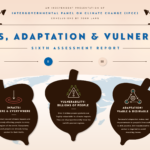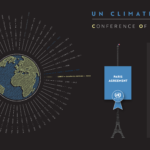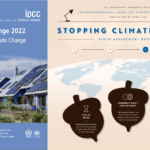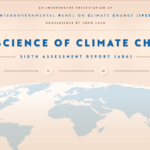The Natural Perspective
“The only ‘ist’ I am is a scientist. I don’t associate with movements, I’m not an ‘ism’. I just think for myself. The moment someone attaches you to a philosophy or a movement then they assign all the baggage and all the rest of the philosophy that goes with it to you, and when you want to have a conversation they will assert they already know everything important there is to know about you because of that association. And that’s not the way to have a conversation.”
Unfortunately I’m not a scientist, but hopefully you get the gist. I’m here to have a conversation. I want that conversation to be big and broad and beneficial, not to mention unencumbered by loaded connotations of what I should be. Unrealistic, I’m sure, but that’s my wish.
So, who am I and what is it I stand for if I’m not your strict environmentalist? What even is a strict environmentalist? Plenty of time to discus the latter so let’s stick with the former for now.
I’ll be succinct and stick with student. Yip, I’m a Master’s student at UCL in London. Not UCLA in America; University College London, in London, studying environmental law and policy. I’d never really been a student before this year. It’s nice. I once spent five years feigning to be a student in New Zealand but that was before I became interested in learning. It could be said curiosity caught me just in time, in my mid-twenties. Fortunately for me—because I was travelling—I could afford to give it some time. In return, annoying as it was to the girth of my backpack, curiosity gave me books.
It started off pretty simple: Bill Bryson, Ha Joon Chang, Ayaan Hirsi Ali, Jeffrey Sachs. It soon got more complicated: Richard Dawkins, Carl Sagan, Noam Chomsky, Jonathan Haidt. Then I just got myself confused: Stephen Pinker, Daniel Kahneman, Christopher Hitchens, Milton Friedman and John Kenneth Galbraith. Eventually though, somewhere indeterminate, a side strand had developed: Tim Flannery, Naomi Oreskes, Erik Conway, James Hansen, Mark Lynas, Elizabeth Kolbert, Tim Jackson and David MacKay. I traded confusion in for an emerging clarity. All of a sudden I’d entered new territory—I was passionate about something other than myself. A problem for me, and for us.
Human-induced climate change’s indomitable advance is not a distant nor minor matter. It’s banal and clichéd to suggest everyone should look behind the curtain to grasp its gravity but there I go, I’ve said it. Most people can’t help but take a cursory peek, but as we all know, we all share, with all people, at all times, the capacity not to see what we do not wish to see. For those of us who yank the curtain with a bit of vigour, there is also the risk, like me, that you’ll become a prisoner of what you know. But there is risk and there is ignorance.
It’s only recently I’ve come to argue that understanding the top problems afflicting society is a moral responsibility, an obligation we owe to future generations as much as we do to ourselves. Especially we who are WEIRD: Western, Educated, Industrialised, Rich and Democratic. Runa Khan, founder of the development organisation Friendship, sums it up neatly: “the West are in a position where they can look at the world tomorrow.” Unlike many of her Bangladeshi compatriots—who by 2100 could be among the 30 million Bangladeshis who are expected to be displaced by sea-level rise—Runa can look at the world tomorrow.
So why explore this topic and other sub-topics that intersect with the issue of climate change with me? The best I’ve got at this point is that it’s because I’m a student. Climate change is easy to get, but it’s hard to understand. I don’t mean the science, that’s (relatively) simple. I mean the politics. To quote Tim Urban from WaitButWhy:
“If you don’t fully get something, it’s like a tree in your head with no trunk—and without a trunk, when you learn something new about a topic—a new branch or leaf of the tree—there’s nothing for it to hang onto, so it just falls away”.
Thinking about climate change requires a thicker than normal trunk. I want to help build a strong trunk for you, and for me. In conclusion, and to begin, I stand for climate change awareness, climate change justice and climate change action because we don’t really know, we don’t really care and we definitely don’t really act. Great psychological reasons may exist for our omissions, but there is no great reason why we should persist with our emissions.




